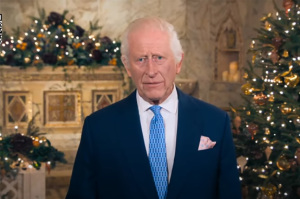The Kingdom is Revealed through We not Me
Last week, an insightful reader shared some relevant and sobering insight into the state of our culture and the church here in America. She wrote:
I have never been more discouraged with both the church and with the state of man. I am overwhelmed with a sense of hopelessness and the feeling that the tidal wave of cultural deception is ready to break over the landscape in a way that we have never seen before. Then I go to church and see how inept the body of Christ has become and leave feeling alone and hopeless about the state of God's Kingdom on earth.
There is no question that such is the state of things. Even the most cursory examination of our culture reveals the fact that critical milestones on the road to every civilization's decline have come and gone. Our civilization appears to be racing toward self-destruction and the church-in almost every measurable category-appears indistinguishable and either ill-equipped or indifferent to arresting the demise of the very civilization it helped create. Whether or not this will be the case, only God knows.
What I am prepared to suggest is that a century or more of Christians being conditioned and committed to nothing more than proclaiming a truncated gospel, rather than making disciples joined in the body of Christ and proclaiming the gospel of the kingdom, has accommodated this decline at best and at worst contributed to it. In other words, the reductionist gospel produced private decisions for Jesus but failed to fulfill the Great Commission, build up the church, render the invisible kingdom visible, or fully convey the message of Christ to a lost and broken world. It is an overarching reason for the despairing sentiment expressed above. As such, it is also a key to changing these conditions.
So, how do we express the gospel of the kingdom beyond its modern reductionist version? You know, the detached consumer-oriented, drive-by evangelism that often relies on tracts and rote presentations-often between strangers. First and foremost, Christians must demonstrate what life looks like under the reign of God within a distinct community: the church. Because as one writer puts it, "Before the church is called to do or say anything, it is called and sent to be a unique community of those who live under the reign of God" (Darrell L. Guder, Ed., Missional Church: A Vision for the Sending of the Church in North America, [Eerdmans: Grand Rapids, MI, 1998]). In a radically individualistic America, this may be the church's greatest obstacle to carrying out the missio Dei.
Jesus' invitation is to "enter the kingdom of God." Practically, this means that we are saved out of our isolation and alienation and into the community of God's people. As C. S. Lewis points out in his classic work Mere Christianity, when Christians are "united together in a body, loving one another, helping one another…" their life together becomes "the one really adequate instrument for learning about God…." The apostle Paul stresses that the Gentiles who were once alienated from "the commonwealth of Israel" have been brought near "by the blood of Christ" that "he might create in himself one new man [or humanity] in place of the two, so making peace, and might reconcile us both to God in one body through the cross" (Eph. 2:12–16 ESV). There is a profoundly corporate sense to God's redemptive plan that carries forward from national Israel to form a new covenant people (the church) out of both the Jew and Gentile into the new Israel.
In Ephesians 5:30 Paul writes we are "members of His body." However, in our individualized culture, we hear Paul's teaching about our being members of Christ in precisely the wrong way. For us a member is a person who merely belongs to something like a club or group. The member in this sense is an individual who voluntarily joins the organization. Therefore, we naturally assume that we posses the rights to our memberships, including the church. Rather than assuming the biblical idea that we exist for the church and the church exists for Christ, we tend to believe that the church exists for us. The American idea of the church, which is reinforced by the privatized "gospel," is more about serving the individual attendee rather than kingdom of God. This might explain why we are nation of church-shoppers and -hoppers! In contrast, Paul uses member in an organic sense. We are members of Christ in the same way that the eye, ear, hand, and foot are members of the body.
At the conclusion of Ephesians chapter two Paul writes, "Built on the foundation of the apostles and prophets, Christ Jesus himself being the cornerstone, in whom the whole structure, being joined together, grows into a holy temple in the Lord. In him you also are being built together into a dwelling place for God by the Spirit" (Ephesians 2:20–22 ESV, emphasis mine). Again, the emphasis is on the corporate nature of God's redemptive plan. We together are the temple of the Holy Spirit, not "I'm a temple" and "you're a temple" and so on. The Christian life to which we are called is far more centered on being we than me.
Also, this community is not merely the social gathering of a people with common values-but rather a people who display proof of God's redemptive work in the world. In other words, we are intended to bear witness to Christ's kingdom come into the world. And this proof or witness flows forth from converted individuals whose transformation is formed and authenticated through their interactions with each other. This community, the church, is intended to bear testimony to the restoration of fellowship with God and each other-a community of self-sacrificing love and support that stands in contrast to the fallen world.
Jesus himself established this one principle as the authenticating fact of our faith when he said "By this all people will know you are my disciples, if you have love for one another" (John 13:35, emphasis mine). In Jesus' priestly prayer in John 17, he reiterates that our relational unity serves as the essential evidence that God the Father has sent the Son. This relational unity was the preeminent witness of the early church in which "they had all things in common." Their love for one another is what drew would-be disciples into their community and established the authority of their proclamation: that Jesus Christ is both Lord and Savior.
The lament expressed by the reader above over both the church and culture is not without warrant and it is reminiscent of the prophets. Like the Israelites in Babylon, the church in America today-the Israel of God-finds itself carried away into captivity: cultural captivity. This is the bad news. However, the good news lies in the possibility that the church, in our generation, will by God's grace recover the full scope of its message and mission as revealed in the gospel of the kingdom. The first step will no doubt involve repentance of our individualism that separates us into voluntary members, followed by submission to Christ, the church, and each other.





























